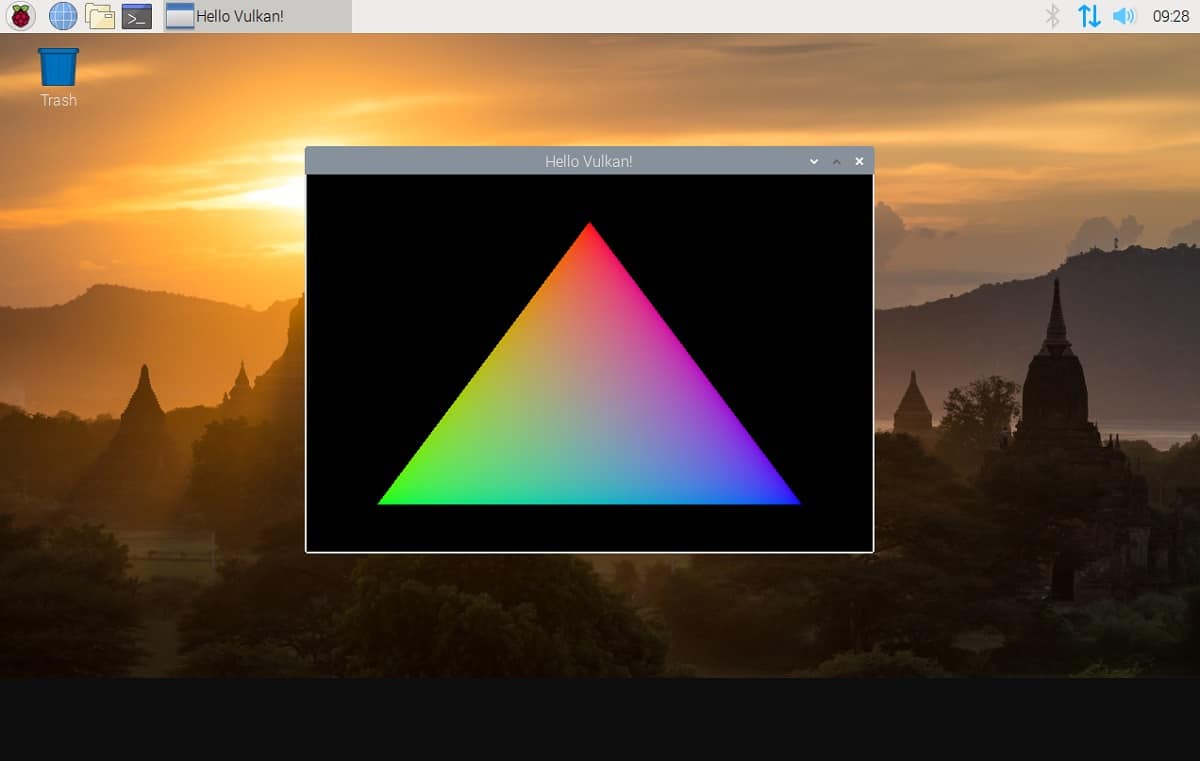
The Raspberry is a single board computer that has gained a lot of popularity and has been used for the development of various projects, ranging from the use of the device for the implementation of AI, video surveillance, to the creation of NAS, among others. And even due to its great popularity, the community has long requested that the device has compatibility with Vulkan, from which even those requests were barely heard.
Eben Upton (creator and developer of the Raspberry) made an announcement on the Raspberry blog, in which unveiled the start of work on a free video driver for the VideoCore VI graphics accelerator used in Broadcom chips. This news comes right after the announcement that Raspberry Pi 4 es compatible with OpenGL ES 3.1.
The new driver is based on the Vulkan graphics API and is primarily intended for use with Raspberry Pi 4 boards and models that will be released in the future. Igalia leads controller development, in collaboration with the Raspberry Pi Foundation.
In the case of the VideoCore IV GPU supplied in Raspberry Pi 3, it is mentioned that it is not enough for a full Vulkan implementation, so the integration of the driver in this version of the Raspberry Pi is completely ruled out.
Vulkan is positioned as a next-generation graphics and computing API It provides highly efficient cross-platform access to modern GPUs.
The Vulkan API has been designed to better accommodate modern GPUs and address bottlenecks common performance standards in OpenGL, providing graphics developers with a new means to get the best performance from hardware.
Eben Upton mentions in his post from blog that:
The Vulkan API has been designed to take full advantage of modern computing / graphics hardware, addressing common bottlenecks in OpenGL.
So far, only the initial prototype of the controller has been prepared, suitable for simple demonstrations. The first beta version, which can be used to launch some real applications, is scheduled to be released in the second half of this year.
In the post by Eben Upton, it shows the work has been done, showing an RGB triangle.
Upton comments that this representation of the triangle of the Broadcom VideoCore VI Vulkan version is evidence of "flawless RGB triangle, single tile" in the controller, even on this early stage of development.
There is currently no access to the code, but there is a promise that it will be available later. Although the arrival of Vulkan to the Raspberry Pi was announced, the development team mentions that this is only initial work and that there is a lot of work to be done.
Before you get too excited, remember that this is just the beginning of the Vulkan development process on the Raspberry Pi. While there have been community efforts in the direction of Vulkan support (originally on VideoCore IV) since 2018, Igalia has only been working on this new controller for a few weeks, and we still have a very long development roadmap for in front of.
In addition, Khronos announced v3d Mesa controller certification (formerly vc5), which is recognized as fully compliant with OpenGL ES 3.1.
Controller is certified with Broadcom BCM2711 chip used in Raspberry Pi 4 boards. Obtaining a certificate allows you to officially declare support for graphics standards and use associated Khronos trademarks.
Finally, the arrival of a Vulkan controller official for the Raspberry Pi It will help improve power consumption, performance, and multi-core deployment.
In addition, it will greatly benefit development on the Raspberry Pi, as Vulkan will provide new means to obtain the best performance from the hardware.
If you want to know more about it About the post, you can check the details of it in the following link